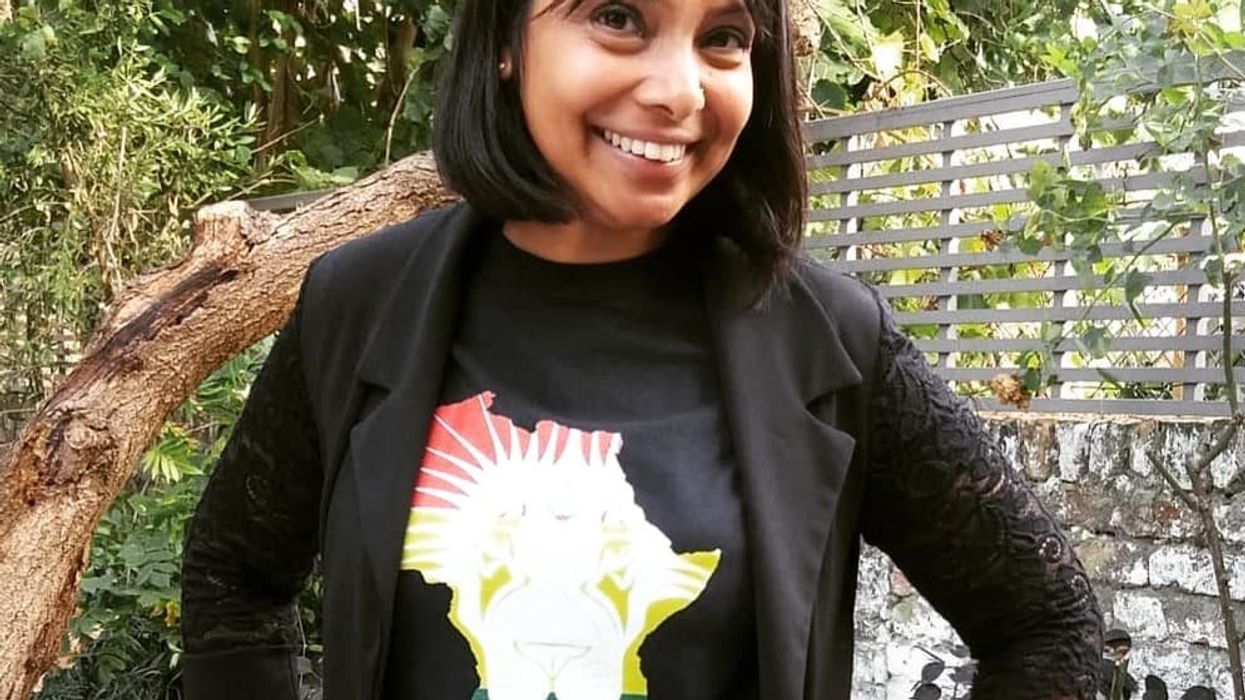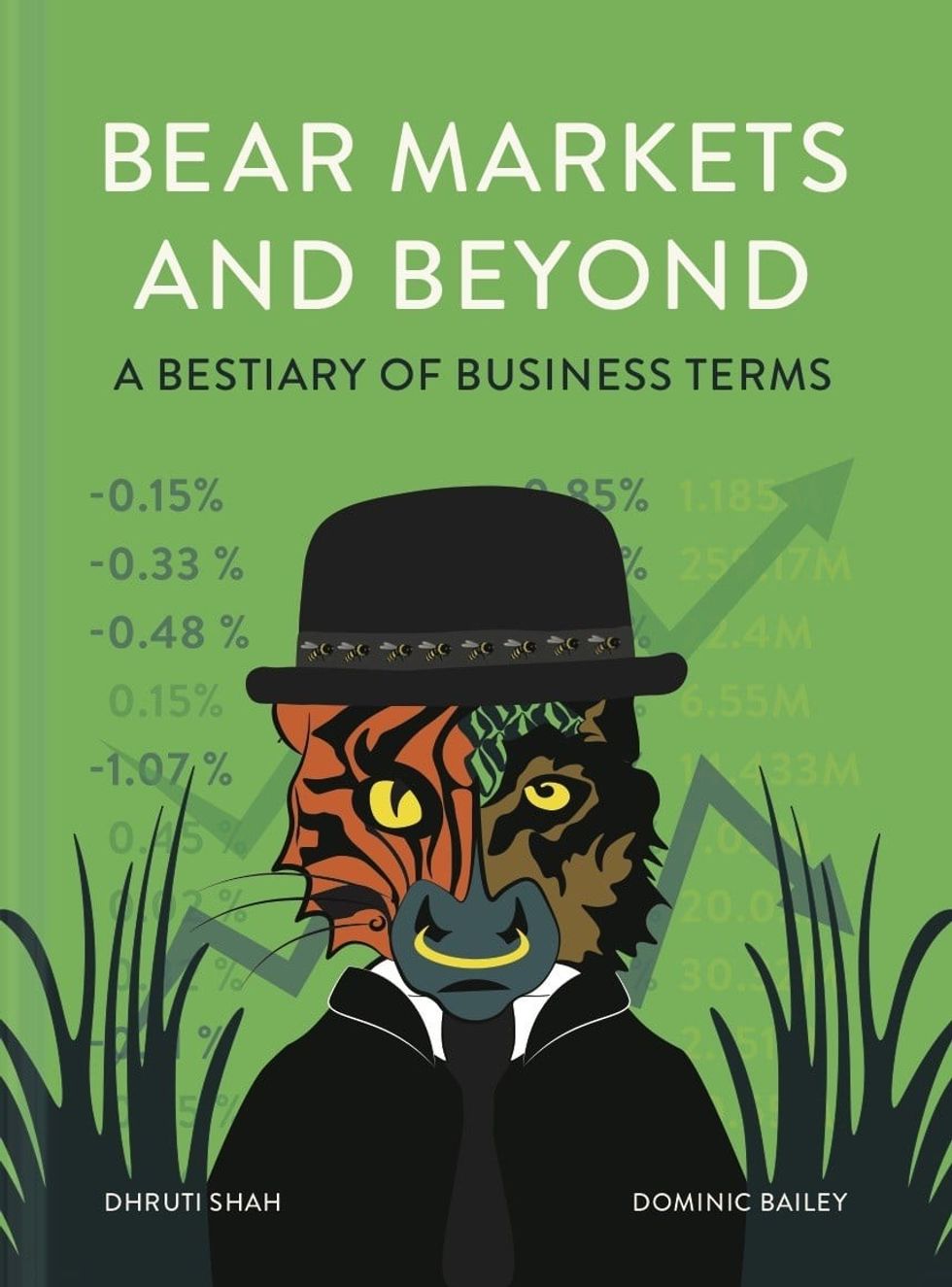I SPENT four years working on my debut book Bear Markets and Beyond and so it’s definitely now imprinted on me the importance of financial literacy. I teamed up with illustrator Dominic Bailey to try to create a fun business guide for people of all ages and experiences, especially children. We’ve all heard of bear markets, but how many actually know that it means the stocks are heading downwards? And unicorns – what makes Facebook one? Who would have thought that business and finance would involve a safari? This little book has beautiful illustrations and is a fun guide to make business less scary. And in a post Covid-19 world, it’s important to be financially literate, so here are my top 10 financial terms from Bear Markets and Beyond: A bestiary of business terms,” said Dhruti Shah.
Bear and bull markets: These are common phrases, but not everybody outside financial circles will understand. A bear market happens when there is a fall of 20 per cent or a long-term decline of stocks for more than two months. A bull market is the opposite. It’s when things are on the up. Anything that’s traded (bonds, real estates, currencies, commodities) can be described as a bull market if the trend is upwards. Think of how bulls and bears attack. Bears swat down with their paws while a bull will thrust upwards.
Vomiting camel: This is a perfect representation of fake news. Technical analysts spend a lot of their time looking at charts and coming up with chart formations to figure out which way the markets are heading. A vomiting camel is a completely made-up chart formation. It means nothing. It first turned up on Twitter several years ago and then FT journalist Katie Martin ran with what was always a joke. But some people think it’s real. It’s not. You might as well be looking at a mirage.
Maneki-neko: The Maneki-neko is the name of the lucky cat that you see in shops and in people’s homes. This beckoning cat (which is what the name translates to) is a lucky charm believed to bring success and prosperity. Many people think that it’s Chinese in origin, but it’s actually Japanese. Cats with the left paw raised brings in more customers while the right paw raised attracts more money.
Catfish: Catfishing goes way beyond the dating world. You never want to be the victim of a catfish. This is someone who pretends to be something they are not – a scammer. They might even create a false online identity to defraud others. If you’re aware of the existence of a catfish, you might take extra precautions to steer clear of them.
Gorilla: A gorilla company is one with the biggest market share of its industry. But it doesn’t necessarily have a monopoly. But the size of its share means it can take a lot more risks. Who’d have thought King Kong would have made his way over to the world of business? The thing is that this beast has a lot of influence in the markets it operates in and when a gorilla company starts beating its chest, the others start being a lot more innovative in terms of how they operate.
Hamsterkauf: When the supermarket shelves started being stripped of pasta and toilet rolls as people stockpiled for pandemic lockdowns, hamsterkauf emerged as the perfect German phrase for our times. Literally meaning ‘hamster purchase’, it is a warning about panic buying. Hamsters might love hoarding food in their cheeks, but this emergency stockpiling meant that not everybody could get what they needed in terms of day-to-day supplies.
Lobster shift: If you’ve ever had to work night shifts, then you’ll also appreciate the fact there’s an animal related word to cover the anti-social beat. The lobster shift was given to those who had to work overnights on newspapers although the phrase started slipping into other industries. The name referred to the time the fish markets would see a fresh catch of lobsters hauled in.
Piggy bank: The piggy bank, which we almost all have had access to growing up, has a fascinating history. The word goes back to at least 1450. Before there were banks, people would stash their money at home in an earthenware pot called a ‘pygg’. And then when potters started fashioning these containers into something more fun, they would take inspiration from the farmyard animal. Oink!
Skunkworks: A skunkworks project is something that’s very experimental – something being worked on by a breakaway group. Those involved are operating in a radical, rather unorthodox way in a bid to create something original and game changing. The name originated in World War 2 with Lockheed Martin, but now many organisations have their own experimental groups.
Wolves: I absolutely love wolves and there are certainly these sharp-toothed creatures in business. As well as the wolves running ruthlessly through Wall Street in a bid to earn, earn, earn, you have Mongolia positioning itself as a wolf economy. The wolf is revered in Mongolia and plays a significant role in the culture. Mongolia wants to be as well-known as the tiger economies.





